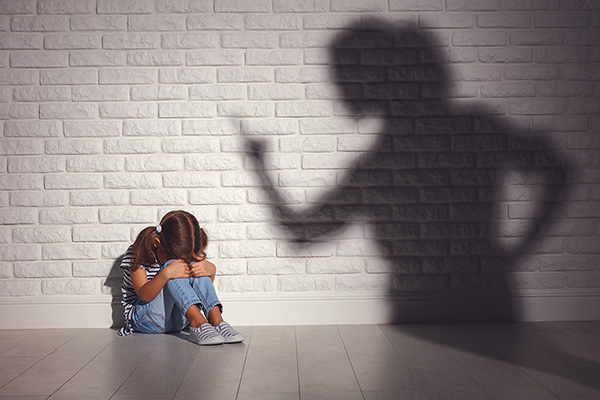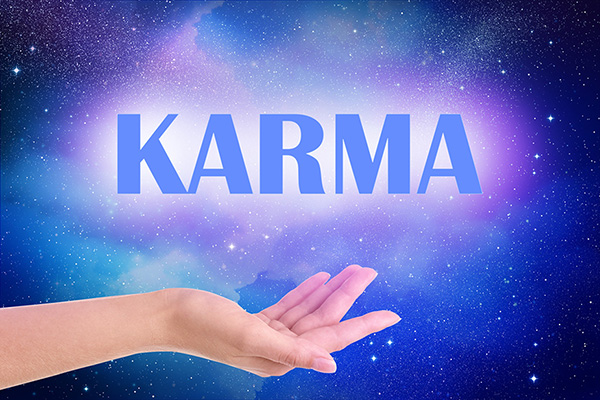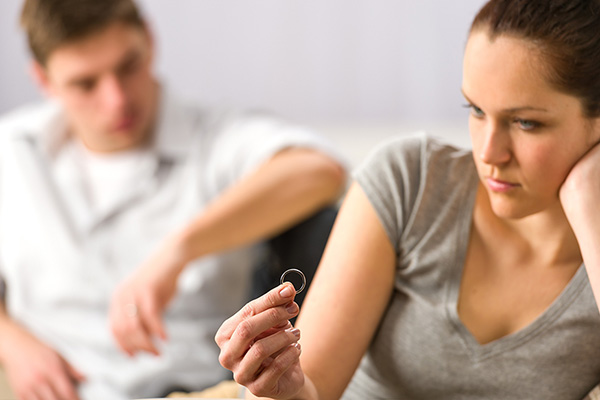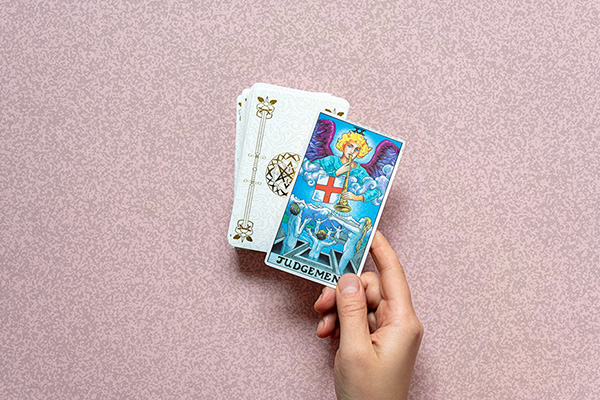self-liberation
Don’t Let Your Ex Jinx Your Love Life!
 I just did a phone reading for a Psychic Access client whose first words were, “Do you think my ex put a curse on me to jinx my love life?”
I just did a phone reading for a Psychic Access client whose first words were, “Do you think my ex put a curse on me to jinx my love life?”
As always, I turned to the spirit realm for guidance. A very close friend of the client, who had crossed over just a few months ago, then came forward with the answers.
“A recently deceased friend of yours says you are jinxing yourself,” I replied. “He says you cannot expect things to change for the better if you keep repeating the same old patterns, looking for love in all the wrong places, with all the wrong people, for all the wrong reasons.
“Um, I don’t see how I’m the cause of the problem here,” my client countered. “I’ve met many women since my last relationship, and all of they seem to want from me is financial support, or to fix their house, or to solve their legal problems, or to somehow take care of all their problems.”
“Well, what do you expect?” replied his friend from the spirit realm. “The first thing you always tell women is how much money you make because you feel the need to compensate for your lack of self-worth. Your ex made you feel you were worthless without all the money you spent on her all the time. But you have so much more to offer than your financial success. You are a good man with a good heart. You don’t have to lead with money all the time,” his friend said.
Make The Most Of Your Next Saturn Return
 Saturn can be a very challenging, difficult planetary influence because of the astrological phenomenon known as Saturn Return, which occurs every 27 to 30 years, which is the duration of its orbit around the Sun back to the same place in the galaxy where it was at the time of our birth. It literally returns to the same zodiac sign, degree, and house.
Saturn can be a very challenging, difficult planetary influence because of the astrological phenomenon known as Saturn Return, which occurs every 27 to 30 years, which is the duration of its orbit around the Sun back to the same place in the galaxy where it was at the time of our birth. It literally returns to the same zodiac sign, degree, and house.
The three Saturn Return in our lifetime occurs around the ages of 27 to 31; 56 to 60, and 84 to 90. Although it is possible to estimate your dates using an online calculator, it may be best to have it calculated by an experienced astrologer.
This major astrological aspect is not to be taken lightly. Saturn Return is associated with major life transitions and personal upheaval. Such as relationship breakups, divorce, relocations, health challenges, and major career, business, or lifestyle changes.
It is a highly self-reflective time when we must contemplate our path, evaluate the choices we have made thus far, and carefully consider what is no longer serving us. People often get sober, get divorced, get married, change jobs, or decide to have children during this time.
Saturn Return exposes our dysfunctional habits and past mistakes, and we gain a new perspective on our life. If we carefully work through these challenges and redefine ourselves on a deeper level, we are empowered to move into a new and improved next chapter of our life.
My first Saturn return included personal growth and healing work brought on by two dysfunctional relationships.
The first was a crush I had on an older boy when I was 11 years old. I have since been shown that I have shared several past lives with him. This time he wanted nothing to do with me, because I was just the “weird psychic kid.”
Betrayal Blindness And The Family Scapegoat
 I have a good friend who was raised by a mother who constantly belittled and talked down to her. She never defended herself, because she grew up believing that she deserved her mother’s abuse, because something was wrong with her causing her to always say and do the wrong things.
I have a good friend who was raised by a mother who constantly belittled and talked down to her. She never defended herself, because she grew up believing that she deserved her mother’s abuse, because something was wrong with her causing her to always say and do the wrong things.
Once she graduated high school, she moved out of her mom’s house. Her life became much more peaceful for several years, until she started noticing that her brother was following in their mother’s footsteps by adopting the same kind of toxic, abusive language towards her.
It oddly became evident to her one year at Christmas time, when she gifted him a beautiful, crocheted blanket that she had been working on for many months and he rolled his eyes and made some disparaging remark about it. She then started noticing how pompous, ungrateful, and narcissistic he truly was. Growing up with him, she always assumed he just had bit of an ego or a macho attitude, but now that she had gained life experience and wisdom, she realized he was simply an abusive jerk.
Still, she chose not to criticize or judge him. In fact, she did the opposite, she encouraged his long-suffering partner to stay by his side and continue to support and love him, because she understood that he was also just a product of his upbringing, like herself. Meanwhile, he faithfully continued judging and belittling her. Because that is what he had seen their mother do all his life.
But one day, something inside her finally shifted. She had reached a point of no return and decided to start standing up for herself! Enough already.
Karma Is A Teacher, Not An Avenger
 People often talk about karma as if it’s some form of divine punishment or retribution that will eventually be visited upon those who have wronged them. Letting karma “take care of it” is a comforting reassurance that we may be rewarded for being the ‘bigger person’ in unfair situations. And certainly it is always advisable to do the right thing when others are being petty or behaving badly.
People often talk about karma as if it’s some form of divine punishment or retribution that will eventually be visited upon those who have wronged them. Letting karma “take care of it” is a comforting reassurance that we may be rewarded for being the ‘bigger person’ in unfair situations. And certainly it is always advisable to do the right thing when others are being petty or behaving badly.
But this is not karma.
The universe is not in the business of handing out ‘karmic punishment,’ for we are not judged as ‘good’ or ‘bad’ for our choices and actions. All of our choices and actions have value and teach us lessons. So, why would there be any need for a universal system of punishment? Or reward, for that matter?
This is not to say that karma does not exist. On the contrary, we can see karma at work all the time in everyday life, down to the most mundane things we choose to do. However, karma is not a force of reckoning, but the cause and effect of energy, which is a universal law.
When we live a heart-centered life, doing good deeds and being kind to ourselves and others, we will feel joyful, happy, fulfilled and at peace. We thrive in the vibrant flow of positive energy. On the other hand, when we live a heartless life, do things that are wrong, destructive, and evil, and we are unkind or cruel to ourselves and others, we will feel miserable, hopeless, dissatisfied, depressed. We suffer in the thick mud of negative energy.
Free Yourself From An Unhealthy Relationship
 An intimate relationship or marriage is meant to be a safe space. Your partner or spouse is supposed to be the closest person in your life. They should be the one person you are able to trust unconditionally with the most important aspects of your life.
An intimate relationship or marriage is meant to be a safe space. Your partner or spouse is supposed to be the closest person in your life. They should be the one person you are able to trust unconditionally with the most important aspects of your life.
If you are currently in a challenging relationship, you need to ask yourself if this union has all the key traits for a healthy, happy relationship. Do you feel secure, safe, and supported? More importantly, do you feel loved and valued?
If not, are you hoping it will somehow work eventually, and develop into something that will offer you more of what you need and deserve?
These are vital questions to ask yourself, not only before you commit to someone, but also throughout the relationship. All relationships evolve over time as people change and grow.
Just because everything was great during the initial ‘honeymoon’ phase of a relationship, does not guarantee it will remain that way. A healthy relationship continues to grow and evolve, as both partners grown and evolve.
I have worked with many clients over the years who settled for less, or got caught up in the downward spiral of a dysfunctional, toxic relationship. Saying “I love you” does not mean much if it is not backed up by matching actions and behavior.
The True Meaning Of Judgment
 Judgment is card 20 in the Tarot’s Major Arcana. Arcana means “hidden things, mysteries,” from the Latin arcanum meaning “a secret, a mystery” and arcanus meaning “secret, hidden, private, concealed.” Arcana are therefore “pieces of mysterious knowledge or information.”
Judgment is card 20 in the Tarot’s Major Arcana. Arcana means “hidden things, mysteries,” from the Latin arcanum meaning “a secret, a mystery” and arcanus meaning “secret, hidden, private, concealed.” Arcana are therefore “pieces of mysterious knowledge or information.”
In a standard Tarot deck, there are 21 Major Arcana cards. They define The Fool’s journey (the first card) through life and all of the life lessons we encounter along the way. As one of the final stages in The Fool’s journey, the Judgment card represents having learned sufficient lessons to now awaken from the illusion and limited perceptions.
The most well-known tarot deck is the Rider–Waite. Pamela Coleman Smith, aka “Pixie,” was a British artist who illustrated the deck. She deserves much credit for the brilliant way she captured advanced spiritual concepts in the deck’s artwork.
The Rider–Waite Judgment card depicts three resurrected figures, a woman, man, and child, reaching up to an Archangel overhead blowing a trumpet as a wake-up call. The scene is based on Christian imagery representing the Resurrection and Last Judgment. The flag of St. George hangs from the trumpet, which references 1 Corinthians 15 in The Bible.
The Judgment card reminds us that no matter what our background may be, we can rise up and transcend any trauma or adversity in life, regardless how challenging the situation. We also have the power to see through the illusion of life and wake up to the truth.
